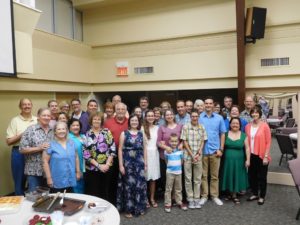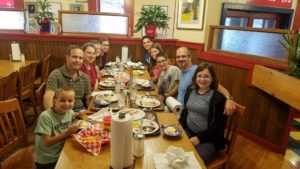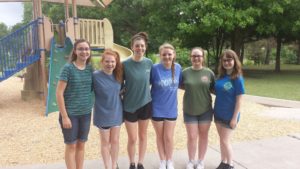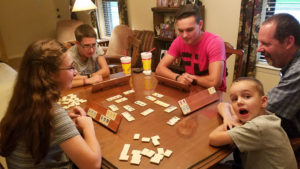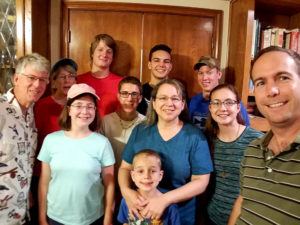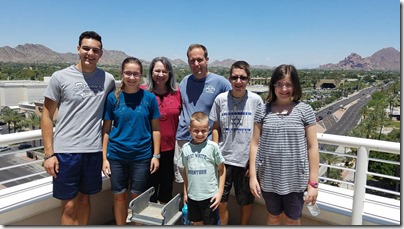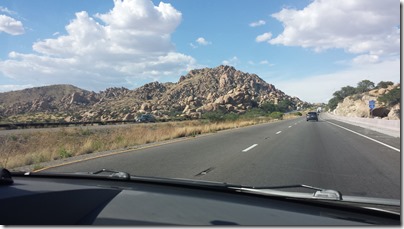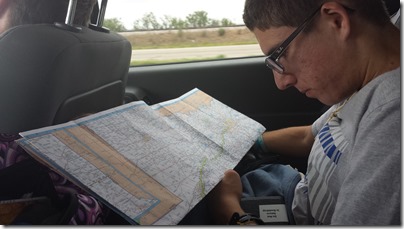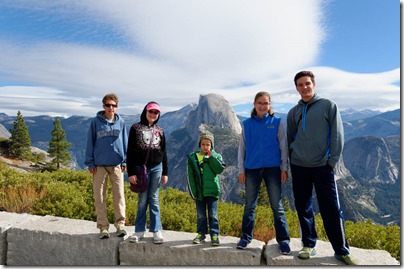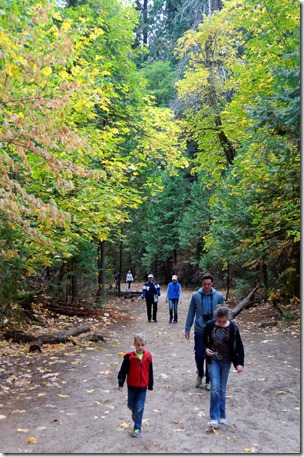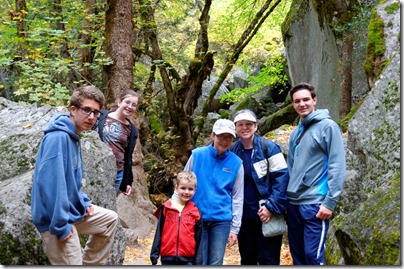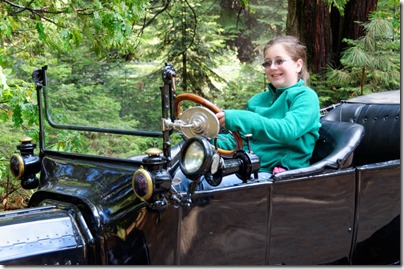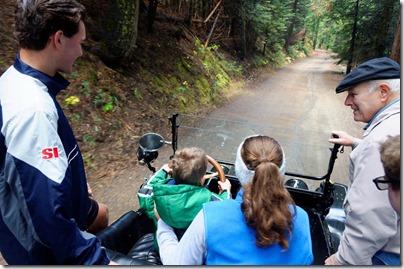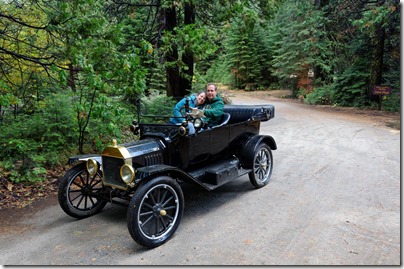Our time in the Dallas area was all about people. We enjoyed three days of meeting up with old friends. Everyone agreed this was a major highlight of our trip.
The centerpiece of our visit was our time at Trinity Bible Church, our home congregation for our six years in Dallas. Kelli and I loved being back with our Sunday School class, and we were so grateful for the potluck they held after church so we had more time to share and catch up.
Koinonia class potluck gathering
The kids enjoyed seeing some of their friends as well. When we moved from Texas, Luke and Mark were just entering high school. When we returned, they had just finished. Jonathan had a little trouble remembering his friends from when he was two.
On the other days, we all met up with various friends and groups of friends that we knew either separately or together. We all loved going back to Spring Creek Barbecue and enjoying good ol ‘ Texas brisket with our pastor and his family. Jeff and I memorized 20 psalms together in the last few years we lived there, and I miss that time of encouragement and friendship.
Texas barbecue with the Millers
The kids all returned to their elementary school, but because school had ended the previous Friday (and we were there on Monday), they didn’t see many of their teachers. But we all agree—this was a fantastic school! The boys popped over to their middle school, but that too was largely deserted.
Back at Hughston Elementary
Kelli, Bethany, and Katie saw different friends at different times, but I don’t have many photos from those. But they would attest that they loved seeing some dear friends.
Bethany with friends
When we had downtime, we could hang out and relax at our hosts ‘ home. It was a tremendous blessing to have a comfortable and convenient place to stay throughout our time there. One evening, Jack taught the kids how to play Rummikub.
Our final evening we spent with our dear friends, the Brociouses. While we haven’t seen most of our Texas friends since our 2013 departure, the Brociouses visited us on a California trip a few years ago, and Jack joined me for a week of travel in Jordan in 2015. Being back together was so fun, and the time flew.
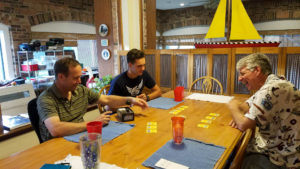 Jack taught Mark and me to play “Chronology”
Jack taught Mark and me to play “Chronology”
The Brociouses, the Bolens, and me learning how to take a selfie
We did have one final, unplanned, late-night stop as we made our way back to the bunkhouse: 30 minutes to run around Half-Price Books. Of course, that 30 minutes took an hour, but no one complained. Tomorrow we load up and head out for Missouri.
